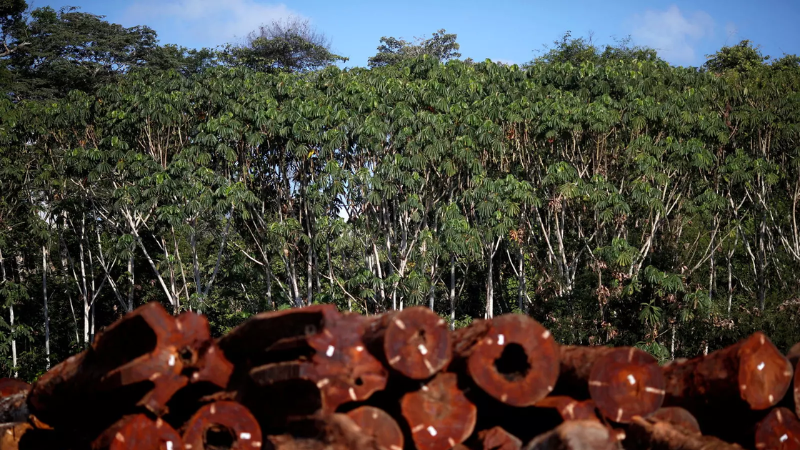
How protecting forests can help us tackle climate change and meet net-zero targets
Forests are essential for our planet and our survival. This is well known, but what is less understood is how forests also play a central role in our climate and how, by protecting them, we can reach net zero.
Reaching net zero is fundamental for our future, as it is a state at which the march of global warming can be stopped, when greenhouse gases going into the atmosphere are balanced out by the amount removed.
1.6 billion people depend on forests
More than 1.6 billion people depend on forests for their livelihoods, as forests provide food, water, wood and employment. Our ecosystems are also dependant on forests as they host and protect 80% of terrestrial biodiversity; act as flood barrier; recharge groundwater, and so much more.
Forests also regulate our climate as they sequester greenhouse gas emissions through photosynthesis when protected or restored, and release it when cut down or degraded. In this way, forests can both be a solution to, and a cause of, climate change.
It just depends on how we care for our forests, whether they are cut down or protected, and at what scale.
Protecting forests can reduce emissions
The great news is that the conservation of forests, alongside other nature-based solutions, can provide up to 37% of the emissions reductions needed to tackle climate change. This makes them one of the most cost-effective and immediate climate solutions, while also protecting invaluable biodiversity and sustaining livelihoods.
In short, keeping our forests standing provides us with an immediate, natural and cheap solution to reach net zero.
We can all take action at an individual level to help achieve this target. We can each can act and contribute to halting deforestation by making more informed choices such as consuming less; reducing packaging; eating less meat and more sustainable food, and choosing wood products that are responsibly produced.
As a society, we need to value forests more when standing than cut down. Today, forests are economically worth more cut down and cleared, which strongly incentivizes deforestation directly or indirectly.
One way to reverse this trend is by assigning an economic value to the carbon stored in forests, which creates an incentive to favour keeping forests standing.
Conserving forests needs to be at scale
As forest protection and restoration needs to happen at a large scale to reach net zero, 'jurisdictional/landscape' approaches are being developed in different regions of the world to ensure greater impact as they aim to preserve a large area.
By bringing the stakeholders so they can develop an integrated approach to reduce deforestation, jurisdictional/landscape approaches are scaling-up programmes to cover an entire country, state or region.
Focusing on large scale solutions allows carbon sequestration to be maximized as well as benefits for livelihoods and the entire forest ecosystem, while also creating a collaborative approach.
Scale up forests protection to strengthen conservation efforts
By scaling up forests protection to cover an entire jurisdiction – such as a state or even a country – conservation efforts are being strengthened and leveraged to reach greater scale and impact.
A jurisdictional approach ensures environmental and social integrity as it leverages the authority that governments have in their jurisdiction to regulate and enforce programmes.
This ensures better long-term success as it requires a collaborative process involving all the key actors involved in such as large landscape.
Such an approach also enables protecting a larger landscape from deforestation, alongside local biodiversity and livelihoods in a bigger area, while mitigating risks.
Most importantly, in addition to all those benefits, it significantly contributes to regulating our climate by providing the necessary benefits to reach net zero.
-
Fuente: weforum.org

